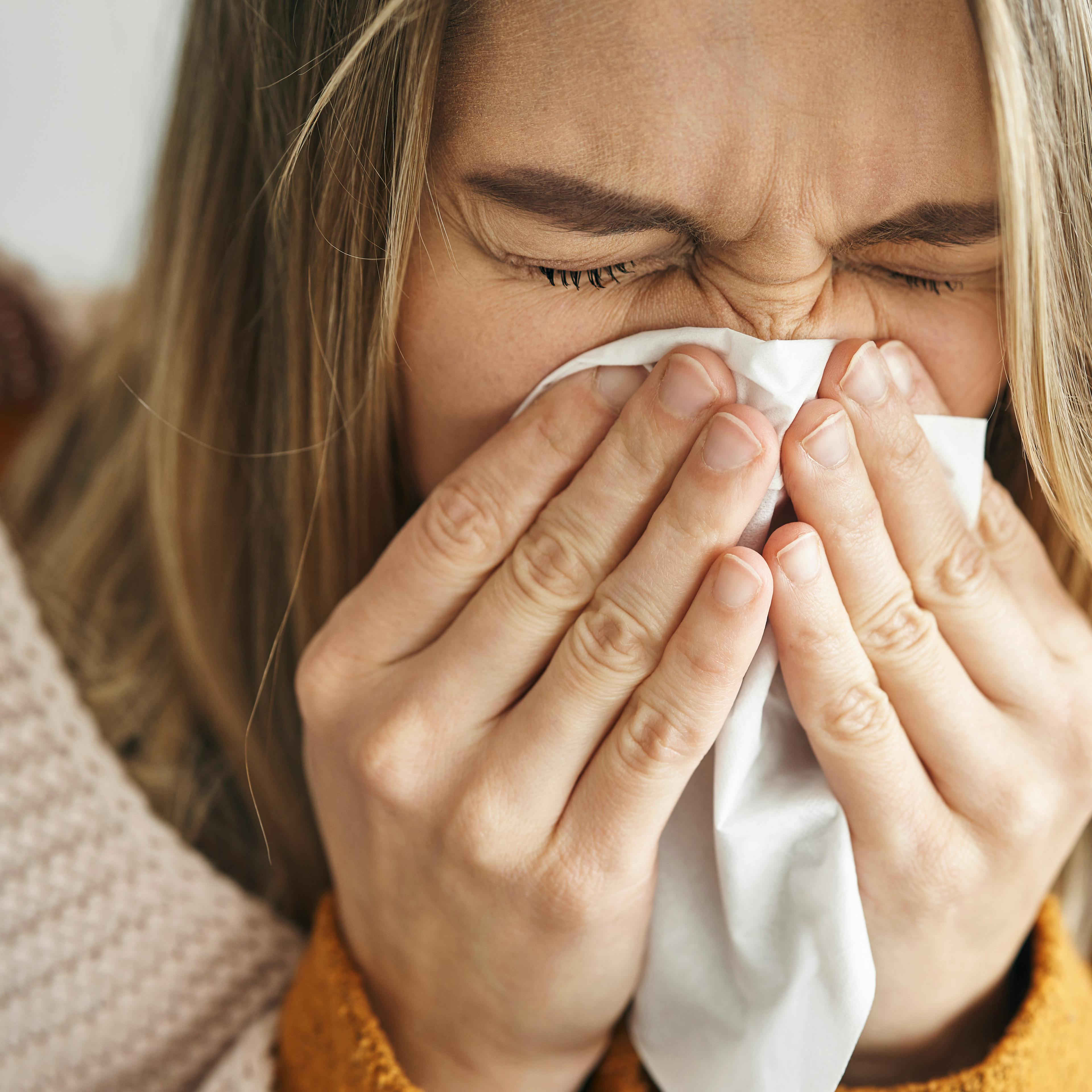One of the most common health complaints, especially during colder months, is a sore throat— also known as pharyngitis. To put it into perspective, sore throats account for approximately 12 million outpatient healthcare visits annually in the U.S., with about half involving children and adolescents.
While no one enjoys the pain, burning, or scratchy feeling of a sore throat, it’s not always easy to tell if it’s a minor flu symptom that will pass on its own, or a sign of something more serious. During these uncertain times, understanding the cause of your symptoms can help provide clarity on whether it’s time to consult a medical professional.
How long does a sore throat last?
A sore throat occurs when the back of your throat is irritated or inflamed, causing discomfort especially when talking or swallowing.
Most sore throats last anywhere between 3 to 10 days. However, if symptoms persist longer than a week, it could signal a bacterial infection like strep throat, a viral illness such as the flu, allergies, or another upper respiratory infection.
Sore Throat Symptoms
The symptoms of a sore throat may include:
- Pain or scratchiness in the throat
- Difficulty swallowing
- Red or swollen tonsils
- Hoarse or loss of voice
- Coughing
- Runny or stuffy nose
- Fatigue or body aches
- Low grade fever
Sore Throat Causes
Now that you have a better idea of how to spot sore throat symptoms, it might be helpful to understand what is causing your sore throat. Here are a few of the likely culprits:
Common Cold or Flu
Sore throats are often the result of viral infections like the cold or flu. These viruses inflame and irritate throat tissues, leading to discomfort.
The common cold is usually caused by rhinovirus, while the flu stems from an influenza virus. Both illnesses include symptoms like runny nose, cough, fatigue, and body aches—with fever and chills only specific to the flu.
Weakened immunity from these illnesses may also lead to secondary infections, such as strep throat. Strep throat, caused by Streptococcus pyogenes (group A streptococcus), has distinct symptoms including:
- White patches or pus on the tonsils
- Fever
- Pain when swallowing
- Swollen lymph nodes in the neck
- Tiny red spots on the roof of the mouth (petechiae)
- Headache
- Nausea or vomiting (especially in children)
Allergies
Seasonal allergies from pollen, dust, mold, or pet dander can irritate your throat and cause symptoms such as sneezing, itchy eyes, a runny nose, and throat irritation. When this happens, over-the-counter antihistamines or decongestants may provide temporary relief. However, if symptoms persist, we recommend consulting an allergist.
Postnasal drip
Postnasal drip is a condition where excess mucus drips down the back of your throat, making your throat feel gross, sore and uncomfortable. You might also notice:
- A frequent need to clear your throat
- Bad breath
- A worsening cough at night
- Bad breath
It’s often treated with over-the-counter medications, saline rinses, decongestants, or antihistamines. Prescription medications may be needed in some cases.
What helps with a sore throat
When it comes to managing a sore throat, small changes can make a big difference. Here are some quick and easy ways to ease uncomfortable symptoms and promote recovery at home.
Stay Hydrated
Drinking plenty of fluids keeps your throat moist and reduces irritation. Warm tea with honey or clear broths provide extra soothing comfort for your throat.
Pain relievers
Over-the-counter medications like ibuprofen or acetaminophen are effective for reducing pain and inflammation.
Gargling
If you gargle with warm salt water, your throat pain and swelling will thank you. For the best results, mix 1/4 to 1/2 teaspoon of salt in 8 ounces of warm water and gargle several times a day.
Avoid irritants
We advise avoiding smoking or exposure to dry air or strong-smelling chemicals that could worsen your throat soreness. For added benefit, consider using a humidifier in your home to add moisture in the air.
When to Go to a Doctor for Sore Throat
Most sore throats resolve on their own. However, there are times when it’s necessary to seek medical attention. Make an appointment with a primary care doctor if you’re experiencing the following symptoms:
- Severe pain or difficulty swallowing
- A fever over 101°F (38.3°C)
- Symptoms lasting longer than a week
- Swollen lymph nodes in the neck
- White patches or pus on the tonsils
- Persistent hoarseness lasting more than two weeks
- Signs of dehydration, like dark urine or dizziness
Find Out What’s Causing Your Sore Throat – Book an Appointment Today
If your sore throat isn’t improving or comes with unpleasant symptoms such as a high fever, swollen glands, or difficulty swallowing, it might be time to consult a healthcare provider. A medical professional is trained to properly evaluate your symptoms, identify the cause, and recommend the right treatment to help you feel better.
Our specialists are here to guide you, answer your questions, and provide personalized care for sore throats and related conditions to keep you feeling healthy.





